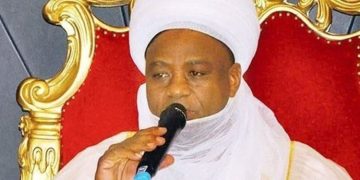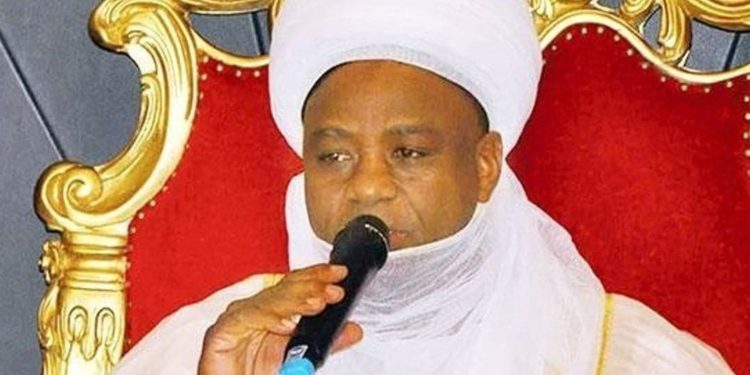In a video shared by GoldmyneTV and viewed by Drivetvnews, the Sultan of Sokoto, Alhaji Muhammadu Sa’ad Abubakar III, voiced strong criticism of social media, describing it as a major driver of false information and instability in Nigeria.
Speaking during the 17th Executive Committee Meeting of the Northern Traditional Rulers’ Council in Maiduguri, Borno State, the Sultan likened social media to a “terrorist organisation,” citing the platform’s role in spreading baseless rumors and inciting public disorder.
“Social media is a terrorist organisation that we must confront,” the Sultan declared. “People sit comfortably in their homes and fabricate stories that turn out to be false. This is dangerous and unacceptable.”
His remarks sparked a wave of reactions online. Many Nigerians took to social media to challenge the Sultan’s statement, arguing that while misinformation is a valid concern, branding social media as a terrorist entity is extreme.
One user on X, identified as Allezamani, said: “Ignoring actual terrorists attacking communities in Bauchi and Jos, yet labeling social media a terrorist group? That’s outrageous.”
Another commenter noted that although the term “terrorist organisation” might be too strong, the underlying concern about the unchecked spread of false information is legitimate and widely shared.
Northern Nigeria has long struggled with a complex mix of security threats. The region faces ongoing challenges from terrorist groups, armed bandits, and intercommunal violence, with devastating consequences for civilians.
Boko Haram, active since the early 2000s and becoming violently prominent by 2009, primarily operates in the Northeast—especially in Borno, Yobe, and Adamawa states. The group has caused tens of thousands of deaths and widespread displacement. In 2016, Boko Haram split, leading to the rise of the Islamic State West Africa Province (ISWAP), which now operates with more organization and influence.
Both Boko Haram and ISWAP target military facilities, civilians, aid workers, and camps for displaced people. They enforce religious laws, extort communities through taxation, and severely disrupt education and healthcare.
In northwestern states like Zamfara, Katsina, Sokoto, Kebbi, Kaduna, and Niger, criminal gangs known as bandits are responsible for mass kidnappings, including of schoolchildren, destruction of farmland, and violent raids on villages. Many analysts believe their tactics closely resemble terrorism due to the widespread fear and instability they cause.
Meanwhile, in Nigeria’s Middle Belt and North-Central regions, escalating conflicts between nomadic herders and settled farmers have taken on ethnic and religious overtones. These clashes, especially in Benue, Plateau, and Nasarawa states, have led to hundreds of deaths and mass displacement.
This widespread insecurity has severely damaged agriculture, trade, education, and healthcare. In many communities, schools have been shut down, and the educational system in some areas has virtually collapsed due to the threat of violence.














